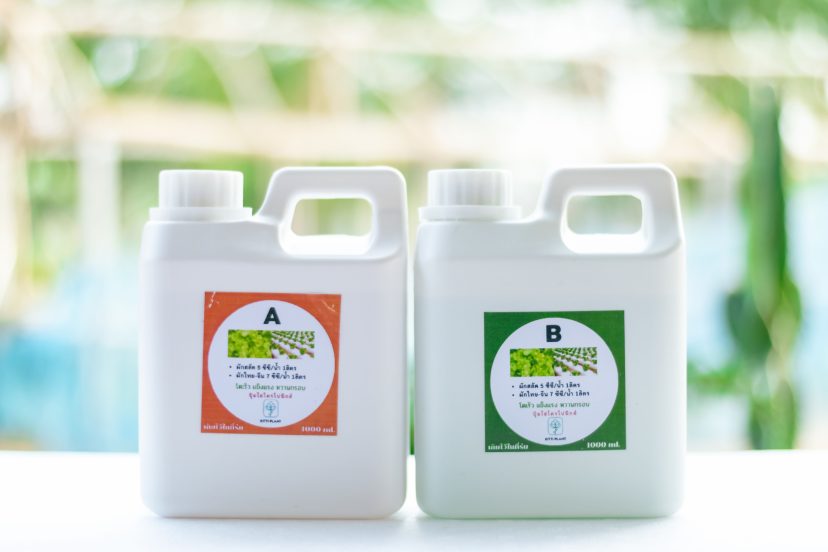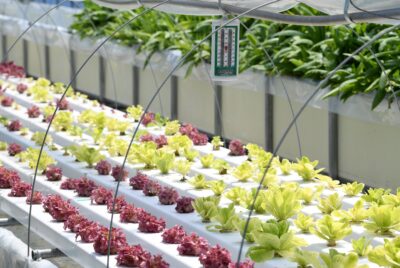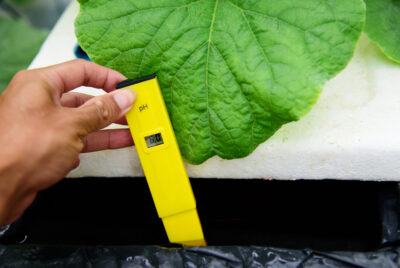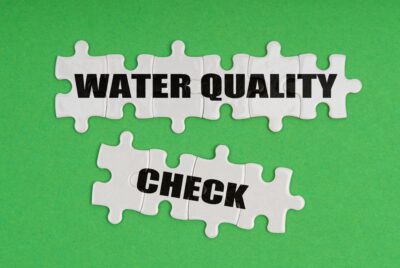Hydroponic Fertilizer
We may earn a commision from purchases made using our links. Please see our disclosure to learn more.
Hydroponic Fertilizer: An Overview.
Howdy, folks! It’s a pleasure to share my gardening knowledge with you all. So, let’s delve into the world of indoor hydroponic gardening today, more specifically, the role of hydroponic fertilizer.
What is Hydroponic Gardening?
Definition of Hydroponics
Ever heard of soil-less gardening? Well, that’s hydroponics for you! In hydroponic gardening, we use water and a mineral nutrient solution to grow plants. Unlike traditional gardening where plants rely on soil for nutrients, hydroponics offers a soil-less approach that maximizes resource efficiency and promotes faster plant growth. So, it sounds exciting, doesn’t it?
The Appeal of Hydroponics
There are numerous advantages to hydroponic gardening that have made it increasingly popular among enthusiasts. Firstly, one of the most significant benefits is water conservation. Hydroponics uses significantly less water compared to traditional soil-based gardening methods. Consequently, this is because water in hydroponic systems is recirculated and reused, reducing water waste. Additionally, hydroponics allows for precise control over the growing environment, including temperature, humidity, CO2, and light. As a result, it can lead to faster and more efficient plant growth. Furthermore, hydroponic systems can be set up indoors, enabling year-round gardening and the cultivation of plants in areas with limited space or unfavorable climates.
Understanding Hydroponic Nutrients
The Role of Fertilizer
In hydroponic gardening, plants rely on a carefully formulated nutrient solution, commonly known as hydroponic fertilizer, to meet their nutritional needs. Unlike traditional gardening where plants extract nutrients from the soil, hydroponic plants directly absorb nutrients from the nutrient solution. Therefore, hydroponic fertilizers play a vital role in providing plants with the essential elements they require for healthy growth, such as nitrogen, phosphorus, potassium, calcium, magnesium, and trace minerals. Consequently, these fertilizers act as a complete nutrient package, supplying plants with all the necessary macro and micronutrients they would otherwise obtain from the soil.
Composition of Custom fertilizer mixes
Hydroponic fertilizers are formulated to deliver the right balance of nutrients needed for optimal plant growth. In contrast, manufacturers design regular fertilizers to break down in the soil and they may not completely dissolve in water. Consequently, macronutrients include nitrogen (N), phosphorus (P), and potassium (K), often represented by the N-P-K ratio listed on fertilizer labels. Moreover, these primary macronutrients are crucial for various plant functions, including photosynthesis, root development, and fruiting. Furthermore, in addition to macronutrients, hydroponic fertilizers contain essential micronutrients, such as iron (Fe), manganese (Mn), zinc (Zn), copper (Cu), boron (B), molybdenum (Mo), and others, which are essential for enzyme activation and overall plant health.
The Importance of Proper Nutrition in Hydroponics
Maintaining proper nutrition is crucial in hydroponic gardening. As the grower, you have control over the nutrient composition and can tailor it to the specific needs of your plants. However, it’s essential to strike the right balance. So, too little of certain nutrients can lead to deficiencies and stunted growth, while excessive amounts can result in nutrient toxicity and plant damage. Consequently, achieving the correct nutrient balance is a key factor in maximizing plant health, growth, and productivity in hydroponics.
Choosing The Right Hydroponic Cocktail
Factors to Consider
When selecting a plant growth formula, you should consider several factors to ensure the best results for your plants.
Plant Nutritional Needs: Different plants have varying nutritional requirements at different growth stages. So, consider the specific nutrient demands of your plants and choose a fertilizer that provides adequate levels of the required nutrients throughout their lifecycle.
Hydroponic System Type: The type of system you’re using can influence the choice of fertilizer. Certain systems, such as deep water culture, hydroponic drip systems, hydroponic wick systems, or nutrient film technique, may require specific formulations or nutrient concentrations. Consequently, be aware of any specific recommendations for your chosen hydroponic system, like a vertical hydroponic garden.
pH Level: Hydroponic fertilizers can affect the pH level of the nutrient solution. Some fertilizers may be more acidic or alkaline, potentially impacting the pH balance required for optimal nutrient absorption by plants. Consequently, consider the pH requirements of your plants and choose a fertilizer that aligns with the desired pH range.
Recommendations
Look for a reputable brand that provides a well-rounded nutrient composition. Additionally, consider hydroponic fertilizers that offer different formulas tailored for various growth stages. This can ensure that your plants receive the specific nutrients they need at each phase, from vegetative growth to flowering and fruiting. Furthermore, when choosing a custom nutrient mix, take into account the compatibility of the fertilizer with your chosen hydroponic system and the pH requirements of your plants. Especially when using hydroponic systems outside.
How to Use Your Hydroponic Concentrate
Dilution and Application
Proper application of hydroponic supplement is crucial for plant health and growth. So, here are some guidelines to follow:
Dilution: Typically, you need to dilute hydroponic fertilizers, which are concentrated solutions, before application. Consequently, follow the manufacturer’s instructions carefully to achieve the appropriate dilution ratio. Over-concentrated solutions can harm plants, while under-diluted solutions may lead to nutrient deficiencies.
Application Methods: There are different methods for applying hydroponic fertilizer, depending on the specific hydroponic system you’re using. Common application methods include adding the nutrient solution directly to the reservoir, applying it as a mist or spray in aeroponic systems, or using drip irrigation systems. Consequently, follow the recommended application method for your system and ensure even distribution of the nutrient solution.
Monitoring and Adjusting Nutrient Levels
Regular monitoring of nutrient levels and temperature is essential to maintain a healthy hydroponic system. Consequently, monitor the electrical conductivity (EC) and pH levels of the nutrient solution using appropriate hydroponic instruments and controllers. Adjust nutrient levels as needed to ensure they fall within the optimal range for your plants. If temperature levels are a concern consider a hydroponic water chiller. The frequency of monitoring and adjustment may vary depending on the plant’s growth stage, environmental conditions, and the specific nutrient requirements of the plants you are growing.
Common Mistakes to Avoid
To maximize the success of your hydroponic garden, be mindful of the following common mistakes:
Over-fertilizing: Providing excessive nutrients can be harmful to plants. Consequently, it can lead to nutrient imbalances, nutrient toxicity, and even plant burn. Especially in a Kratky system where the roots sit in the fertilizer all the time. So, follow the recommended dosage and avoid the temptation to add more fertilizer than necessary.
Ignoring pH Levels: pH levels directly impact nutrient availability and absorption by plants. Consequently, failure to monitor and adjust pH can result in nutrient deficiencies or toxicities, hindering plant growth. Regularly check and adjust the pH of the nutrient solution as needed to maintain the appropriate range for your plants.
Neglecting Regular System Checks: Hydroponic systems require regular maintenance and checks to ensure optimal performance. Consequently, monitor the overall system health, including water levels, temperature, airflow, and potential signs of pests or diseases. Address any issues promptly to prevent detrimental effects on your plants.
Advantages and Disadvantages of your Hydroponic Cocktail
Pros
Control: Hydroponic fertilizers allow precise control over the nutrients your plants receive. Consequently, you can tailor the nutrient solution to meet the specific needs of different plant varieties, growth stages, and environmental conditions.
Efficiency: Hydroponics offers a highly efficient nutrient delivery system. Consequently, nutrients are directly delivered to the plant roots, maximizing nutrient uptake and minimizing wastage. This efficient absorption promotes faster and more robust plant growth.
Versatility: Different hydroponic fertilizers are available to cater to various plant growth stages and types. Consequently, whether you’re growing leafy greens, herbs, micro greens, or fruiting plants, there are specialized formulations designed to meet the specific nutritional requirements of different crops.
Cons
Complexity: Achieving the correct nutrient balance in hydroponics requires careful monitoring and knowledge. Consequently, it can be challenging for beginners to understand the intricacies of nutrient interactions and ensure optimal nutrient levels. Regular testing and adjustments are necessary to maintain a healthy hydroponic system.
Cost: Hydroponic fertilizers can be more expensive than traditional soil-based fertilizers. Consequently, the specialized formulations and precise nutrient compositions contribute to the higher cost. However, the increased efficiency and higher yields often associated with hydroponics can offset the initial investment over time.
Conclusion
Hydroponic fertilizers are essential components of a successful hydroponic garden. They provide plants with the necessary nutrients to thrive in a soil-less environment. Consequently, by carefully selecting the right nutrient solution, maintaining proper nutrient balance, and monitoring the system’s health, you can achieve remarkable results in your hydroponic gardening endeavors.
Remember, hydroponic gardening is a journey of learning, experimenting, and growing. So, embrace the opportunities it offers, and after all, enjoy the satisfaction of nurturing healthy plants in a controlled and efficient indoor environment. Happy gardening, folks!
FAQ’s
Can I use regular fertilizer for hydroponics?
Regular fertilizers are usually not suitable for hydroponics as they lack certain necessary nutrients and are designed for slow release in soil.
Can I use hydroponic fertilizer to enhance an aquaponics system?
No, unfortunately, hydroponic fertilizers and fish don’t mix.
How often should I change the nutrient solution in my hydroponic system?
Experts generally recommend changing the solution every 2 to 3 weeks, but the frequency may vary based on your system and plant type.
What happens if I over-fertilize in a hydroponic system?
Over-fertilizing can cause nutrient burn, evident by the brown or yellow discoloration of plant leaves, and it can ultimately lead to plant death.
Is hydroponic gardening organic?
Whether hydroponics is organic or not is a subject of debate. Some argue that without soil, it cannot be truly organic. However, there are organic hydroponic nutrients available.
On the other hand, regular fertilizers, in contrast, are designed to break down in the soil and may not completely dissolve in water.
While most plants can be grown hydroponically, some are better suited to this method than others. Consequently, leafy greens, herbs, and some fruits like tomatoes and strawberries are commonly grown hydroponically.
Hydroponic Fertilizer Vs. Regular Fertilizer
There is often a debate among indoor gardening enthusiasts about using hydroponic fertilizers vs. regular ones. Consequently, to put it simply, hydroponic fertilizers are specially formulated for hydroponic systems. They are water-soluble and provide a balanced nutrient solution for your plants. In contrast, regular fertilizers are designed to break down in the soil and may not completely dissolve in water. Therefore, using them in a hydroponic setup might not provide your plants with the nutrients they need.
I hope this guide has helped you to understand the role of hydroponic fertilizer in indoor gardening and has inspired you to try it out yourself. Consequently, remember, the beauty of gardening lies in the journey, not just the destination. So, get your hands dirty, immerse yourself, and, most importantly, after all, have fun with it. Happy gardening, folks!





Comments are closed.